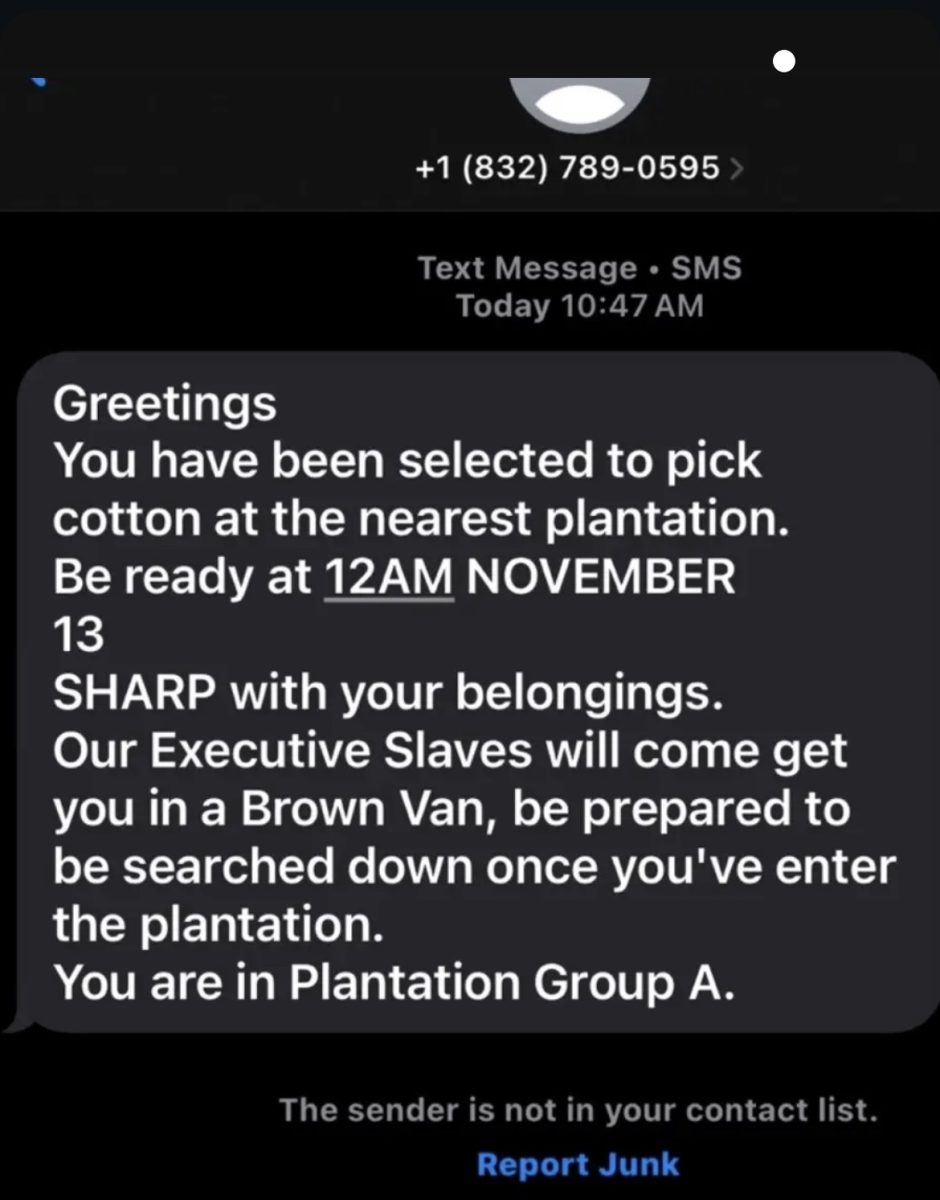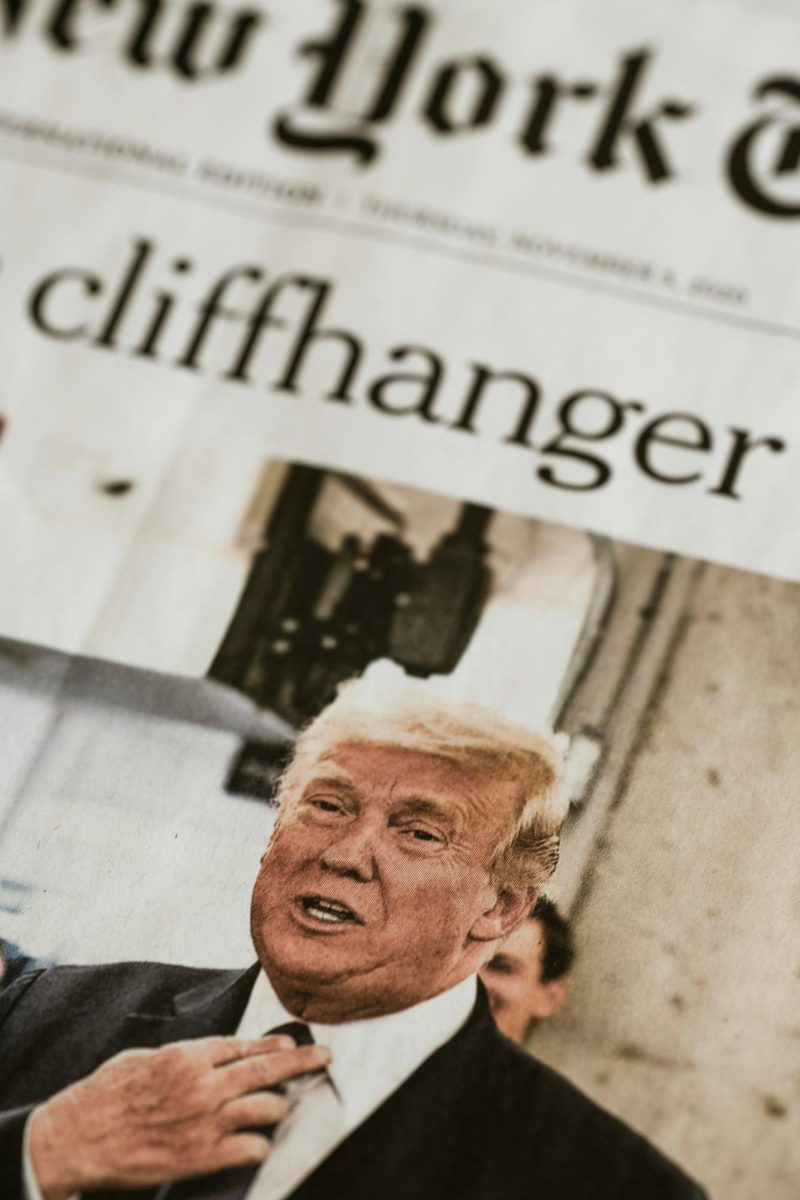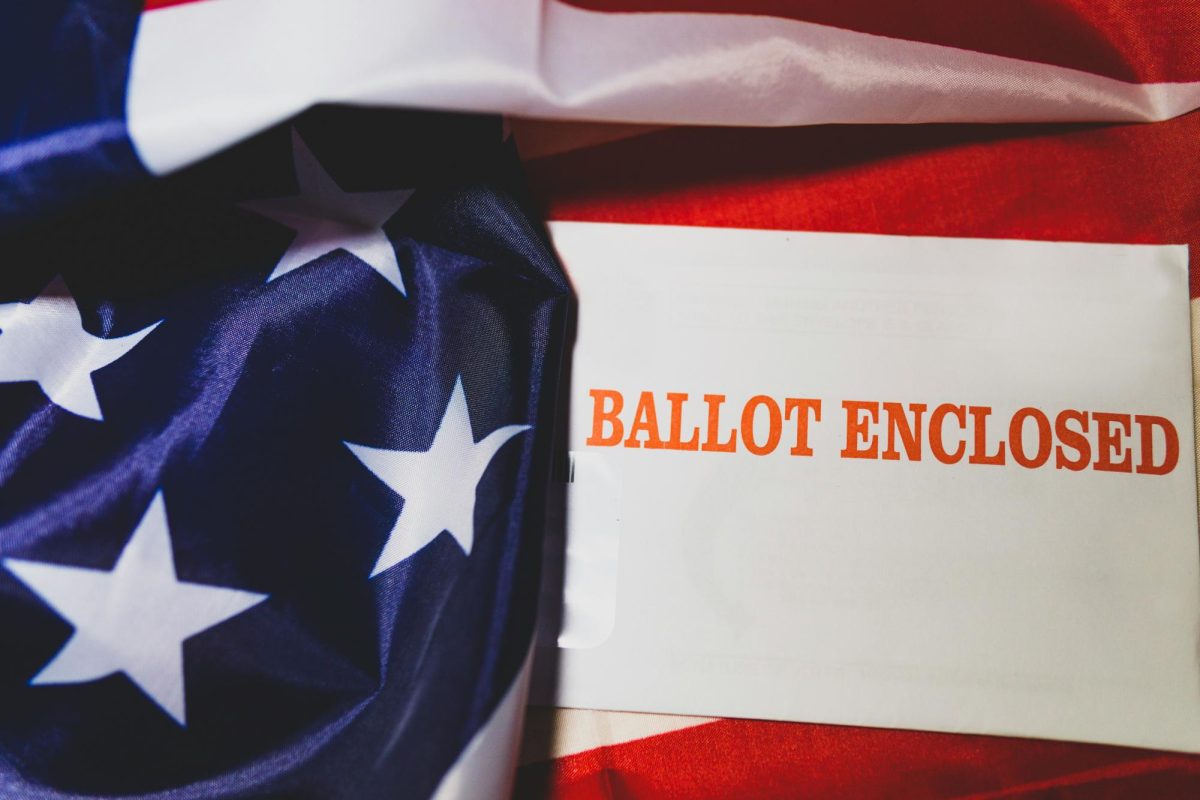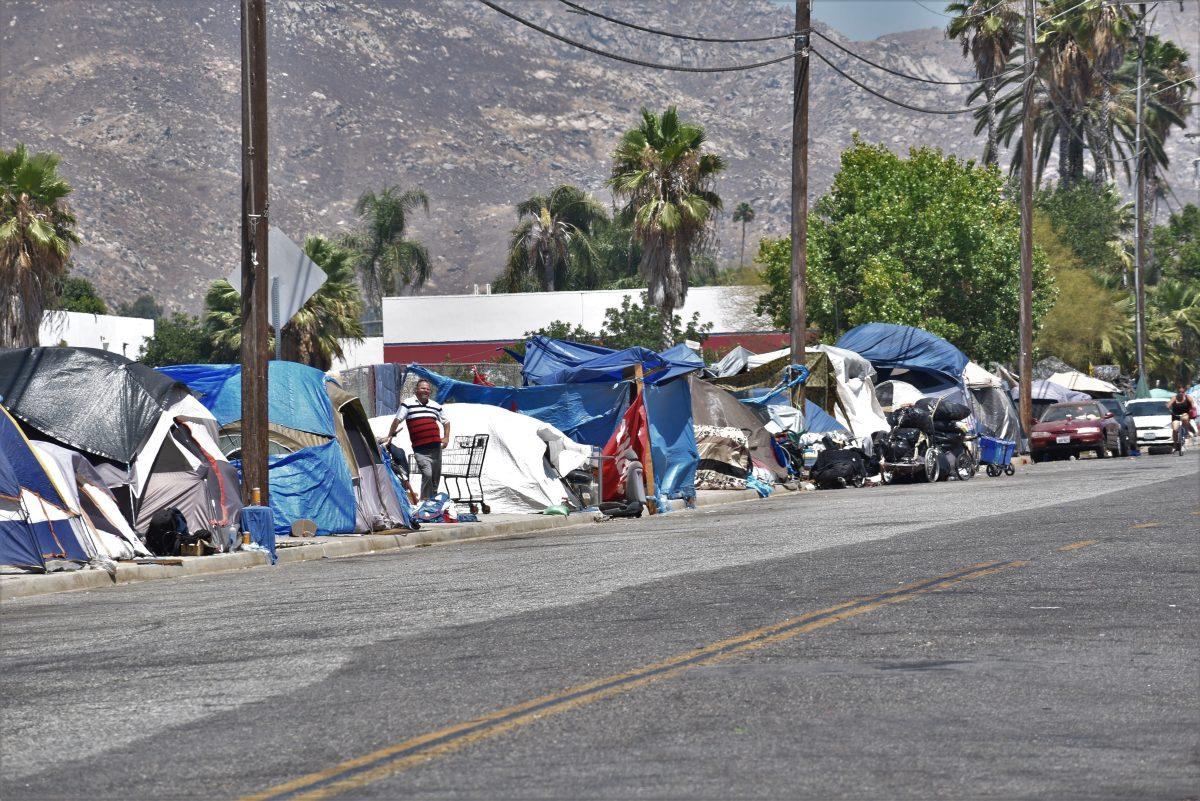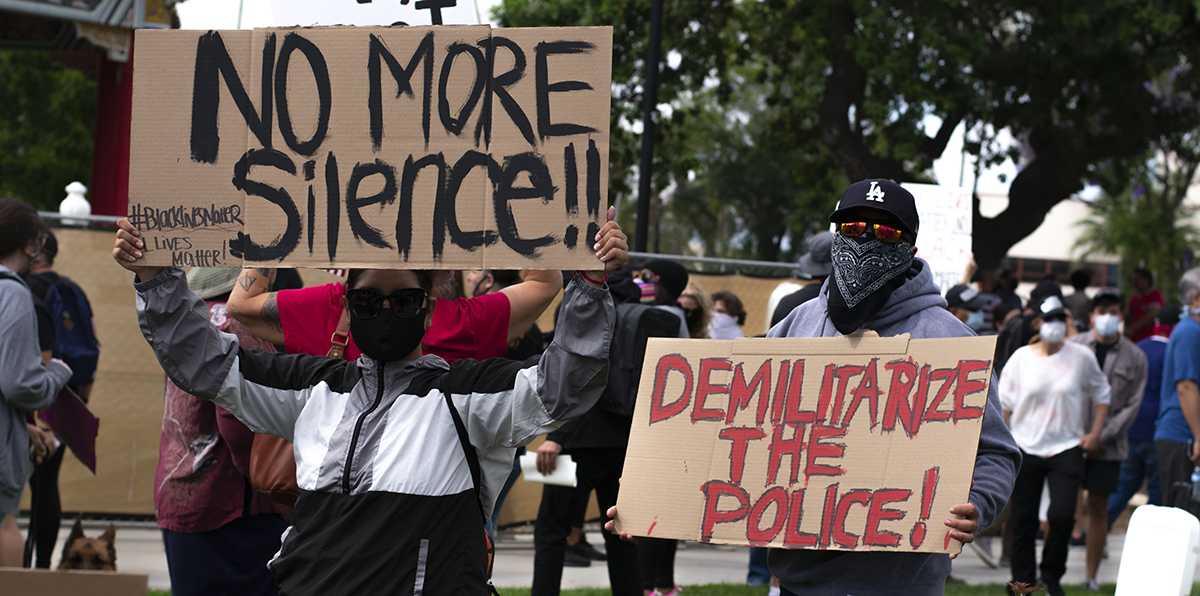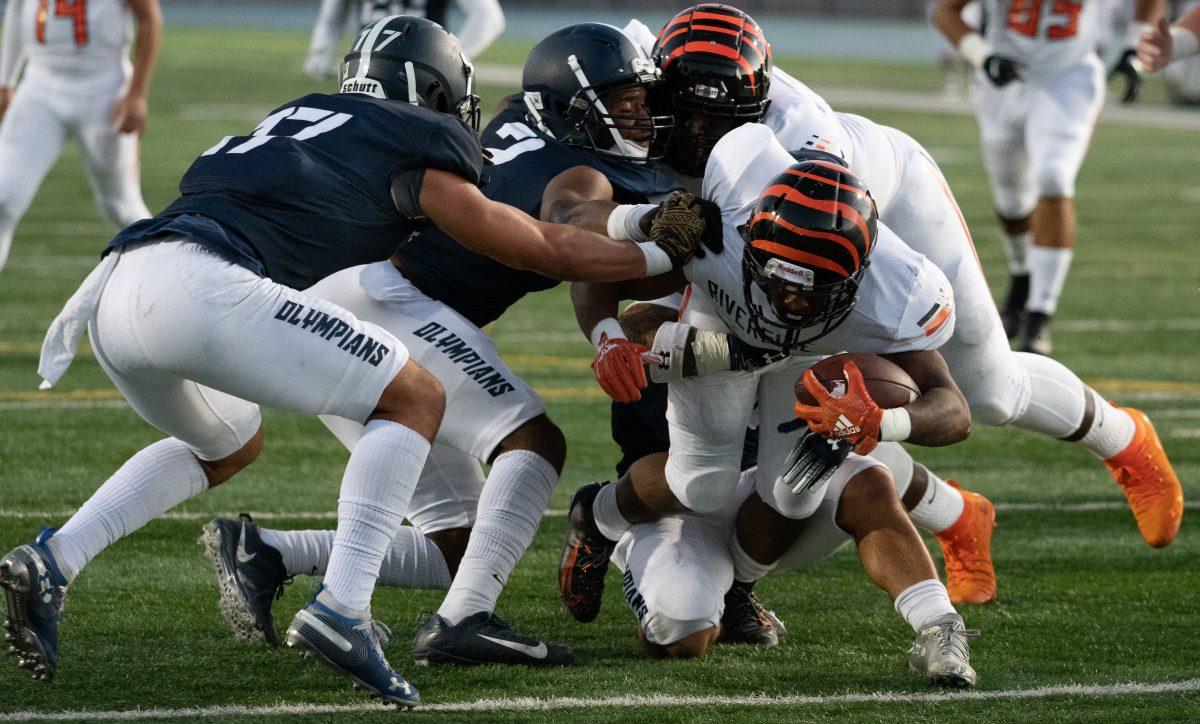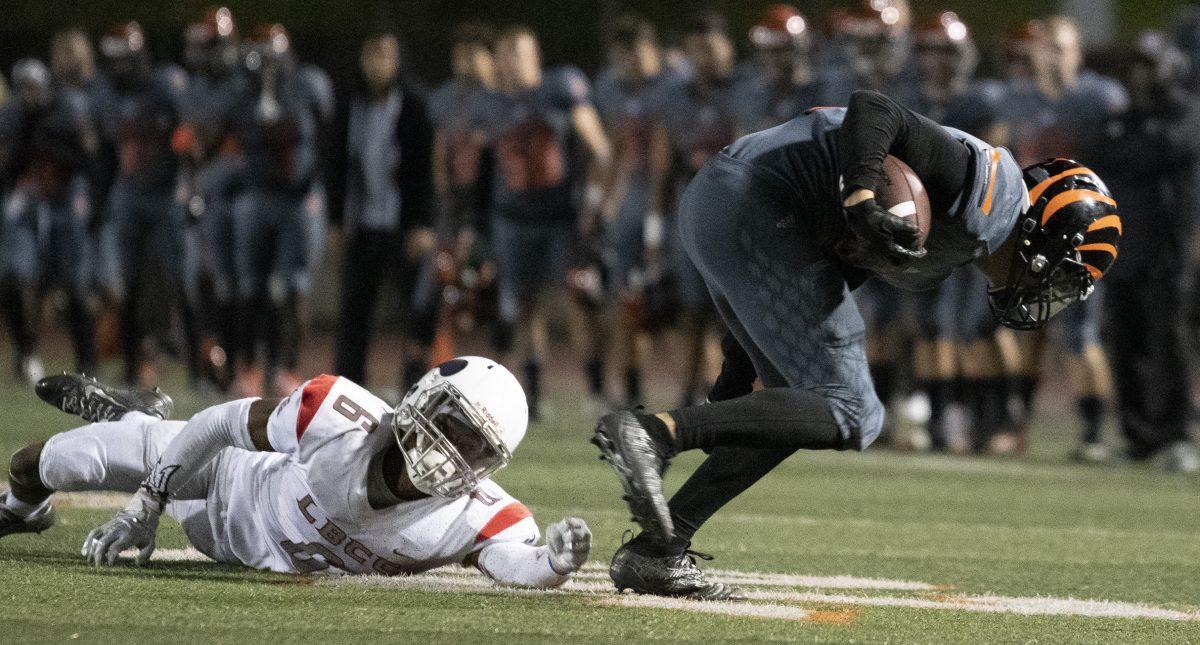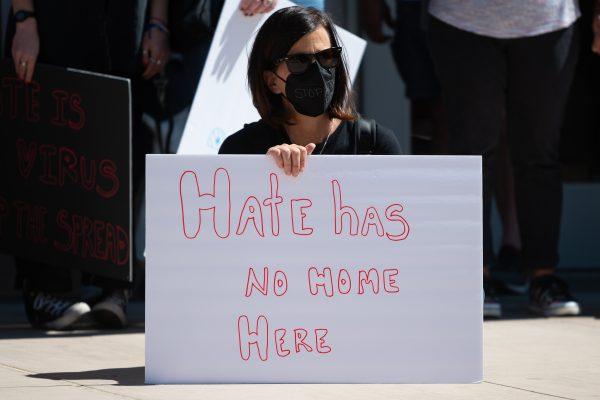
By Cheetara Piry
Several dozens gathered in solidarity in downtown Riverside to denounce xenophobia and hate against the Asian American and Pacific Islander (AAPI) communities.
The diverse crowd converged at the memorial for Dosan Anh Chang-Ho, a Korean independence activist, at the intersection of Main Street and University Avenue at midday March 27.
Rep. Mark Takano, D-Riverside, was about to leave for Georgia when he heard about the downtown rally. He said that as an Asian American congressman, he felt it was his duty to make a stop and address the recent surge in anti-AAPI hate crimes.
“It’s definitely in response to (the) murders of six Asian women in Georgia,” he said about the demonstration. “That crime has awakened people everywhere.”
A 21-year-old White man killed eight people, six of whom were Asian women, in Atlanta, Georgia during a killing spree that specifically targeted three massage parlors March 16. The shooter insisted the attack was a result of his sex addiction.
Jay Baker, Cherokee County Sheriff’s Office captain, said during a news conference the following day that the shooter wanted to rid the temptation by eliminating massage spas and that this was a result of a “really bad day.”
According to police data collected by Cal State San Bernardino’s Center for the Study of Hate and Extremism, there has been a 145% increase in hate crimes against the AAPI community in the last year. AAPI women have reported abuse and mistreatment at a higher rate.
Priya Vedula, medical school student and spokesperson for the Asian Pacific American Labor Alliance, shared some of the incidents of hate the community has suffered.
“We need to bring light to that issue that we’ve been facing this for a long time,” Vedula said. “Hateful rhetoric led to so many happy families facing the rage, getting spit on, beaten. Discrimination is becoming more apparent now in ways that have become more violent and more hurtful, especially to our vulnerable elders and our women.”
Asian-owned nail salons in Yucaipa and Riverside have recently been harassed in a string of racist letters that urged them to leave the country.
The mayor of Eastvale, Jocelyn Yow, was frustrated and said she felt paralyzed when watching the news. She had just held a vigil a week prior at Eastvale City Hall, but was apprehensive that rallies are not enough.
Yow made the point of incorporating ethnic studies at the K-12 level as a means of curbing racism for future generations.
“Too often, a lot of people don’t know a whole lot about Asian American history,” she said. “It’s not just these hate crimes. Racism has been happening in this country for decades, for centuries.”
Yow pointed to anti-Asian legislation enacted by the U.S. government including the Page Act of 1875, an anti-immigration law that targeted Asian women, the Chinese Exclusion Act of 1882, the Japanese internment camps of World War II, and the murder of Chinese American Vincent Chin by two White men in 1982.
“We need to make sure that those stories, our stories, our voices are included in the history book and that people are aware about that,” she said. “We need to make sure history doesn’t repeat itself.”
Takano attributed the rise of hate crimes in the AAPI community to the frustrations brought on by the pandemic. He said irresponsible rhetoric from former President Donald Trump stoked further resentment in an already angry minority.
The congressman suggested several avenues for keeping AAPI communities safe and seen.
“We need to review the extent to which we have outreach into the different AAPI areas,” Takano said. “We need to understand whether law enforcement has the capacity to be able to communicate in those languages. We need to make sure we cultivate the voices of AAPI communities on advisory boards.”
Yow said the protest gave her a “glimmer of hope.”
“It made me realize that while there’s hate, the opposite of that end is also love,” she said. “And everyone is here because they have chosen love and unity.”




